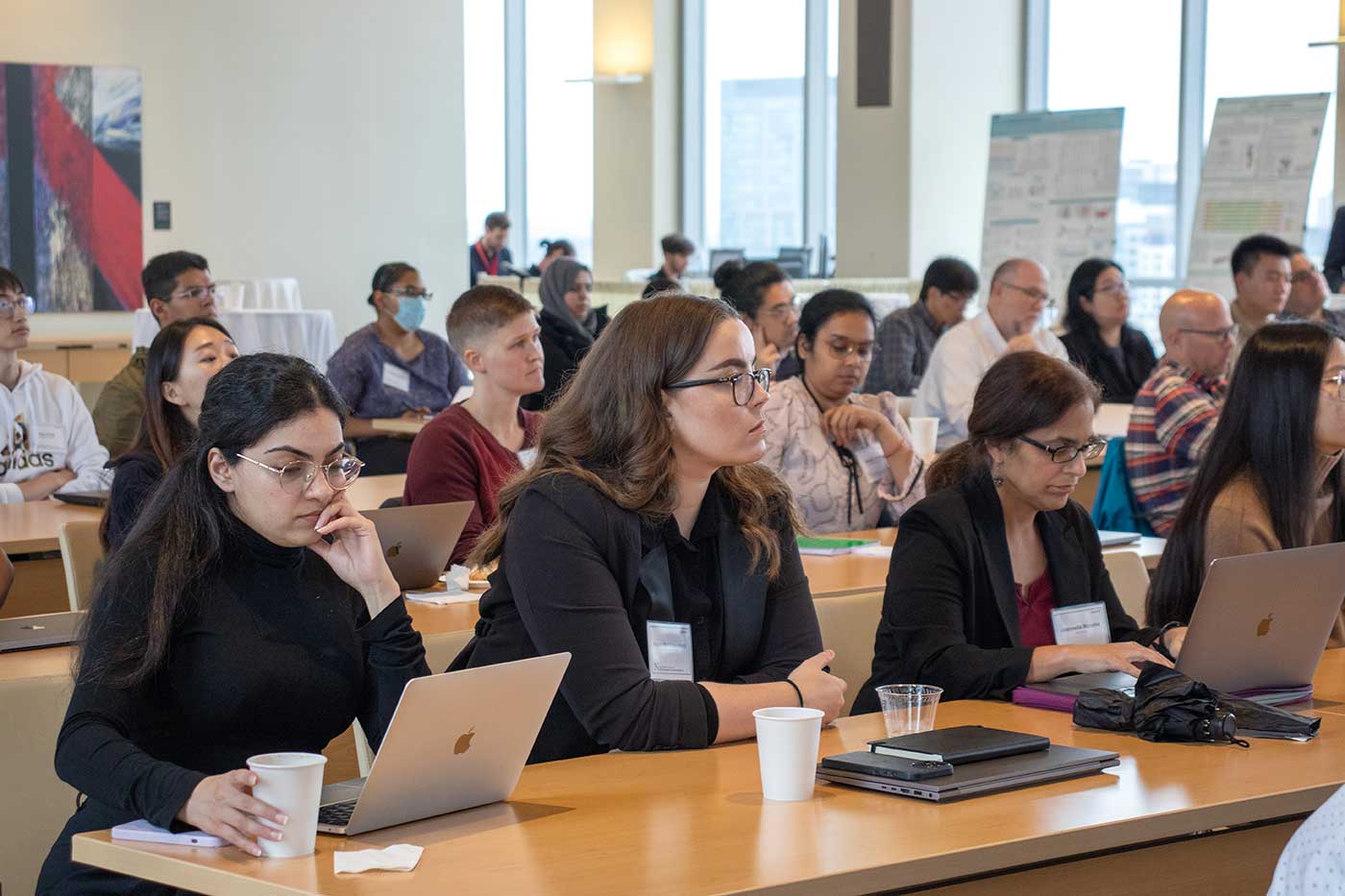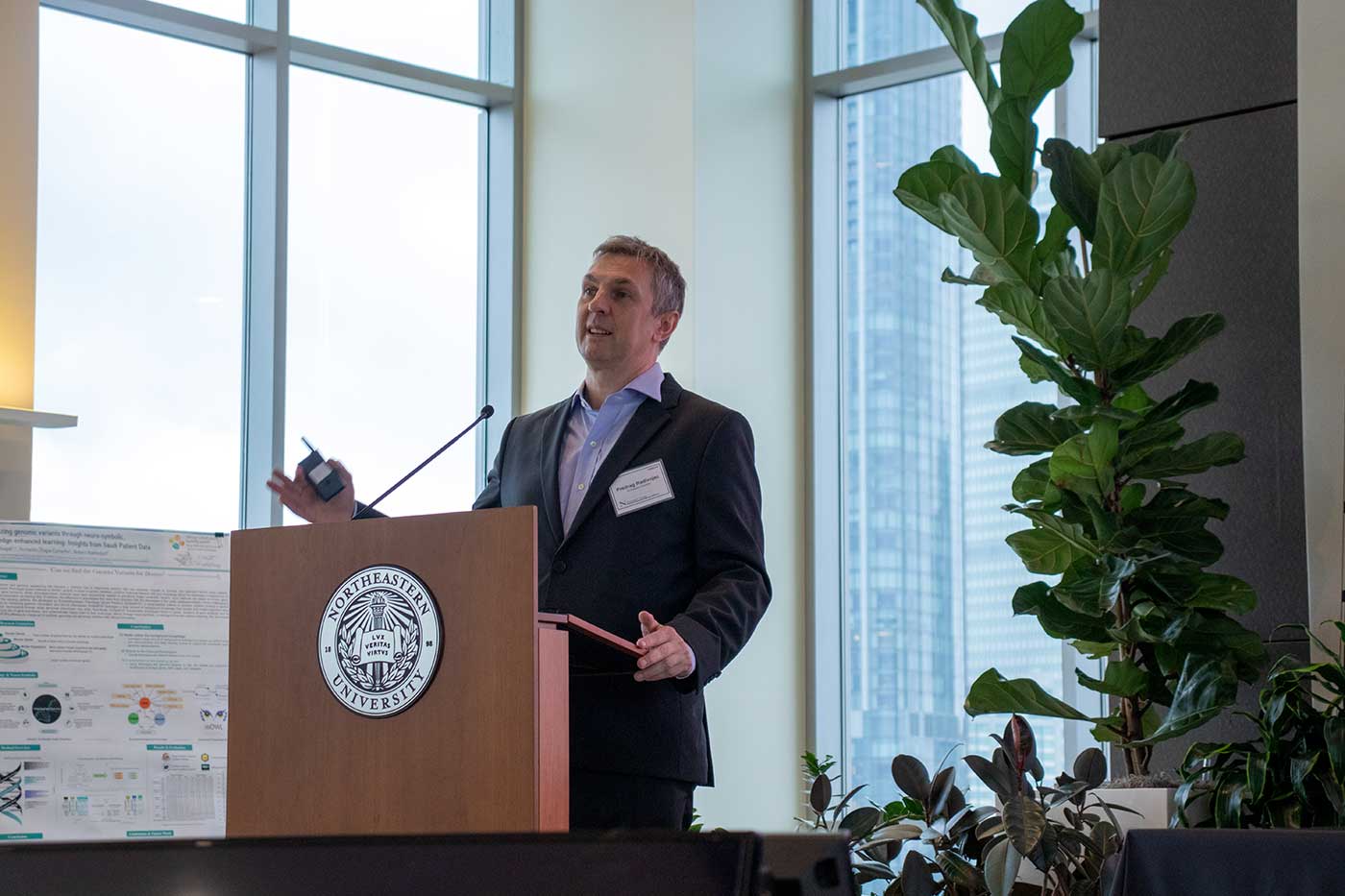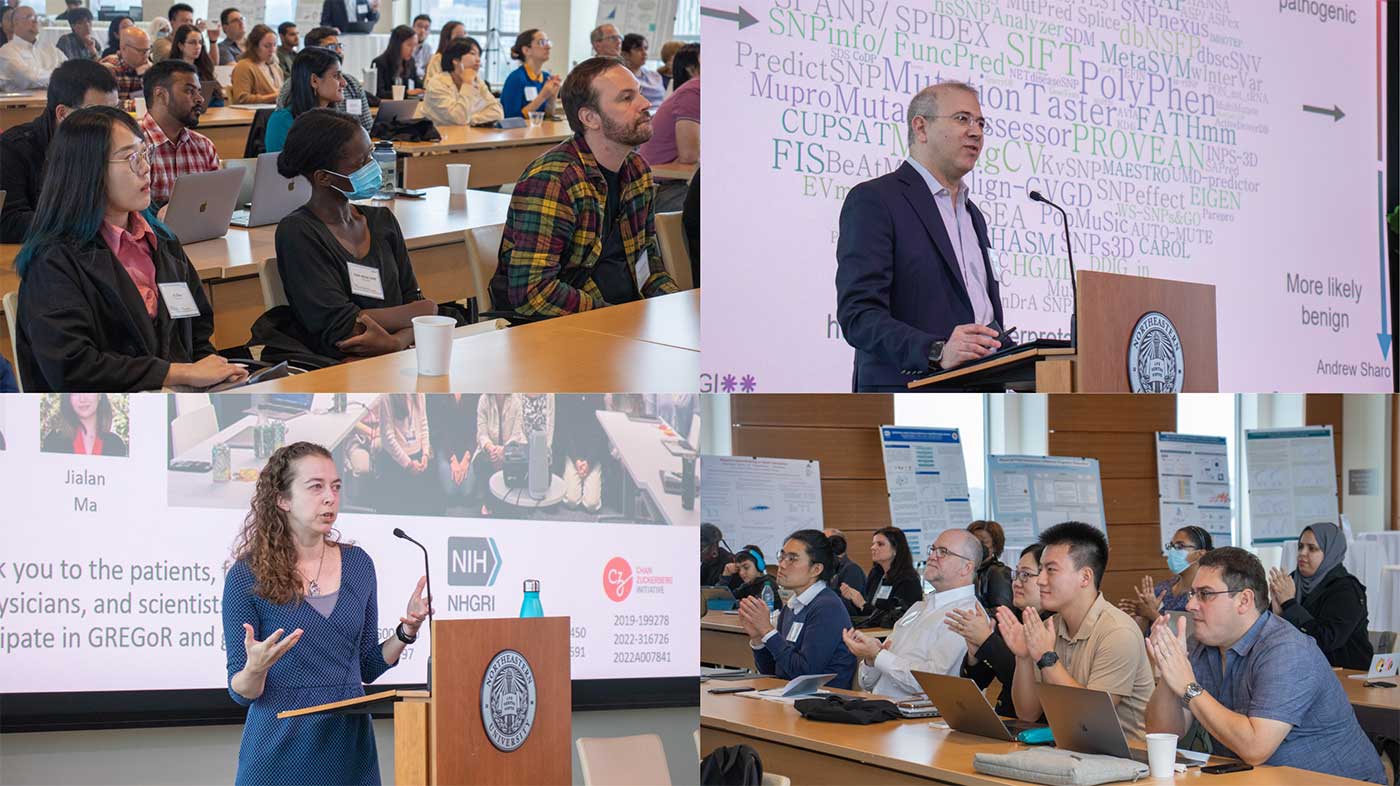Northeastern welcomes researchers from around the globe for genome interpretation workshop
Author: Milton Posner
Date: 10.12.23
 Photos by Edzani Kelapile.
Photos by Edzani Kelapile.
After years of involvement with the Critical Assessment of Genome Interpretation (CAGI), and after co-chairing the group’s most recent conference in 2022, Predrag Radivojac finally got his chance to welcome the group to Boston and to Northeastern.
Beginning on Friday, September 29 and continuing through the weekend, nearly 100 computational genomics and biomedical researchers flocked to the top floor of Northeastern’s East Village to catch up on the latest research and evaluate the challenges that remain.
“CAGI’s mission is to conduct community experiments and rigorously evaluate the state of the art in patient genome interpretation,” noted Radivojac, Khoury College’s associate dean of research. “That means evaluating the accuracy of computational predictors and providing valuable information to users, be they biomedical researchers, clinicians, or computer scientists. We also highlight methodological innovation and bottlenecks in the field, and contribute to the development of guidelines and regulation of computational methods.”

At CAGI conferences, these experiments take the form of “challenges” — group experiments where participants are presented with genetic variants, predict phenotypes based on the variants, then have their predictions independently assessed. It’s all part of an effort to understand how genetic variation impacts diseases and disorders, and to diagnose earlier and more accurately.
But this event, titled CAGI** (pronounced CAGEY-star-star), was a bit different. As the group’s second-ever workshop, the event aimed to highlight advances in the field and distill insights from CAGI’s first six conferences. It did this through themed sessions ranging from rare diseases to emerging methods to polygenic risk scores — genetic analyses that can help to predict whether a patient is likely to develop specific diseases later in life.
FOR MORE: In clinics, classrooms, and conferences, Predrag Radivojac elevates computational genomics
“Faced with hundreds of methods [of interpreting genetic variation] that all excelled, it had become a challenge to understand their distinctive characteristics and how they should be used,” noted Stephen Brenner, CAGI’s co-chair and a professor at UC Berkeley. “CAGI aims to understand that challenge and figure out which methods are best for each application.
“CAGI is an experiment, not a competition,” he added. “We aim to understand what is happening in each method and how it’s performing, not to crown winners or besmirch losers.”

The workshop also contained a pair of keynotes. The first came from Anne O’Donnell-Luria of the Broad Institute of MIT and Harvard, who works to more effectively diagnose rare diseases by discovering novel disease genes and improving the interpretation of rare genetic variants. The second came from Wendy Chung of Boston Children’s Hospital, who researches the genetic basis for more than a dozen diseases, disorders, and conditions, including autism, diabetes, and cancer.
The audience that heard them hailed not just from academia, but from industry — with representatives from Pfizer and Google DeepMind, among others — and from institutions such as the Memorial Sloan Kettering Cancer Center, Mass General Brigham, and the NIH (CAGI’s main funder). And fittingly enough for an event that drew researchers from the US, UK, Japan, France, Italy, Saudi Arabia, Germany, Thailand, and Denmark, the event also touched on the value of data sharing and developing a diverse community of study participants, both tricky endeavors given some countries’ reluctance to allow across borders.
CAGI’s next full conference is penciled for the summer of 2024, not far off at all. But the nature of genomics, especially in the age of computing, means that even such a short window is still ripe for discovery.
Subscribe to Khoury News
The Khoury Network: Be in the know
Subscribe now to our monthly newsletter for the latest stories and achievements of our students and faculty